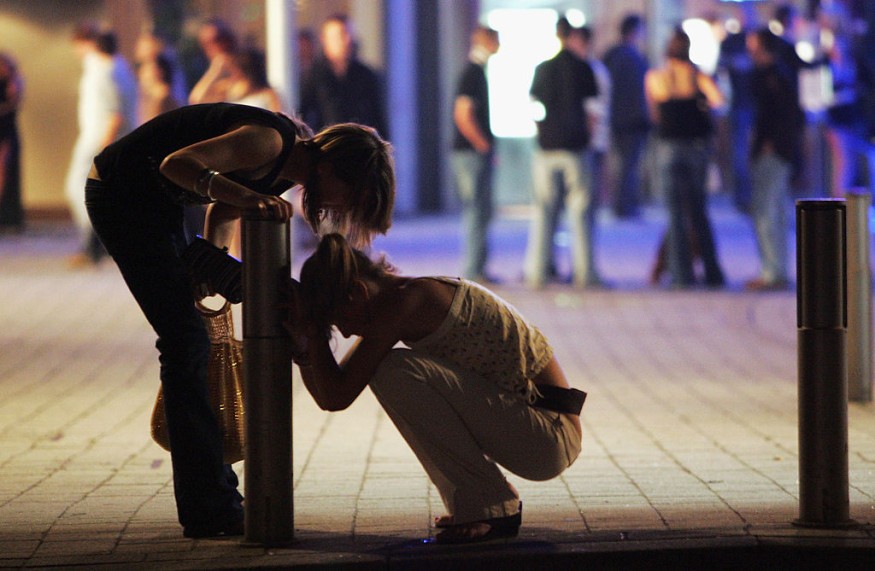The longer you're confined in your home during the COVID-19 lockdown, the more likely you're to binge drink. The common saying is also a finding from the American Opioid and Alcohol Addiction Journal.
The recently released web-based self-report study from U.S. adults from mid-March to mid-April 2020 examined "sociodemographics, alcohol intake, and COVID-19-related sources of stress (household composition, job status, critical worker, stay-at-home duration, and depression)." 69 percent of the 1,982 participants were female, and 31 percent were male.
The findings were not surprising: during the pandemic, 34 percent of the study registered binge drinking, and those binge drinkers consumed more (60 percent) than non-binge drinkers during the pandemic (28 percent).
Binge drinking was described here as men who drank five or more drinks or women who drank four or more drinks within a time frame of two hours. During each lockout week, high booze intake also increased an additional 19 percent.

Coping Mechanism?
Binge drinkers are historically struggling with depression, and present signs of depression have higher probabilities of elevated alcohol intake.
If one positive side remained, that was with parents; after the pandemic, people studied residing with children had fewer chances of binge drinking.
"Our results indicate that those who spent more time at home during the early stages of the pandemic were more likely to consume alcohol at unhealthy levels," study co-author Sitara Weerakoon said. The researcher noted the "particularly concerning" results for those with a previous diagnosis of depression and current depressive symptoms.
"There is evidence that engaging in binge drinking can lead to long-term alcohol use disorders and alcohol dependence, which in turn lead to more health problems in the long run," said Weerakoon, a doctoral candidate at the University of Texas School of Public Health.
On average, according to the researchers, each respondent had been in lockdown for four weeks and spent 21 hours a day at home, with about three-quarters not leaving home for work.
During the pandemic, slightly over a third of respondents registered binge drinking, with binge drinkers growing their use, while some are consuming about the same number of drinks even before the lockdowns.
Binge drinkers expressed drinking four drinks per occasion before the lockdowns began, while some had an average of two drinks. An average of seven beverages per occasion were participants who drank at unhealthy amounts during the pandemic. While others may have a maximum of two drinks per session, the data revealed.
Compared to people without a history of the disorder, participants with a prior diagnosis of depression and mild, moderate, or extreme depression symptoms had an up to 80 percent increased risk of binge drinking during the pandemic.
In an interview with ABC News, RAND sociologist Michael Pollard clarified that it's a coping strategy as well.
Pollard said the stress of individuals rises, distress rises, and substance consumption is also a way to interact with these emotions. But the effect of drinking is still stress and anxiety, he said. The sociologist added there's this circular cycle that only increases the dilemma it's attempting to solve.
Other Factors?
Weerakoon noted that life stressors - including loss of employment and social deprivation, are a significant factor in consuming alcohol at unhealthy levels.
"Our results also found that increased time spent at home in isolation is impacting the likelihood of binge drinking, [which may indicate that people had more time to spend drinking alcohol, in addition to suddenly experiencing life stressors," she said.
And although this new analysis has certain drawbacks, such as how much of the participants were white, high earners, prior studies have seen similar patterns.
For example, a poll conducted in the U.K. showed that one in five people drank more during the lockdown, and 15 percent claimed they drank more every session.
Another research from the United Kingdom showed that the percentage of people consuming more than six beverages in a single sitting went from 10.8% in 2017-19 to 16.2% during lockdown at least once a week.
And although the U.K. can be infamous for heavy drinking, comparable alcohol abuse levels are found in other nations, including the U.S.
ALSO READ : How Binge Drinking Affects Your Brain Activity
Check out more news and information on Medicine and Health on Science Times.










